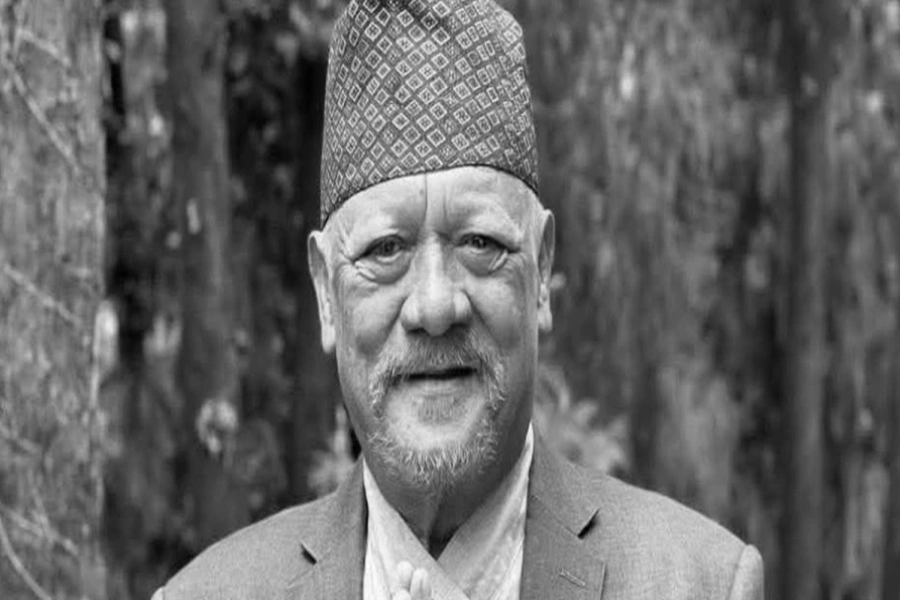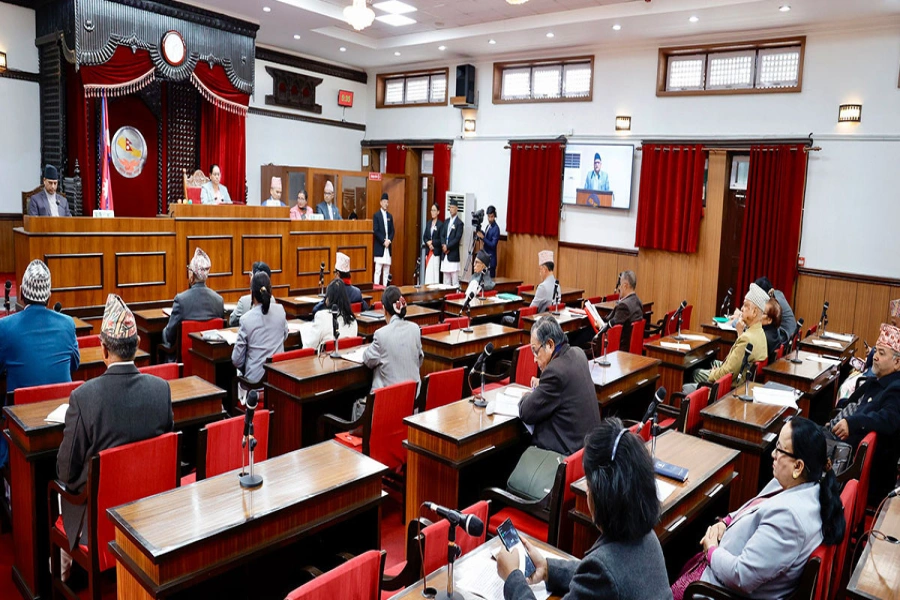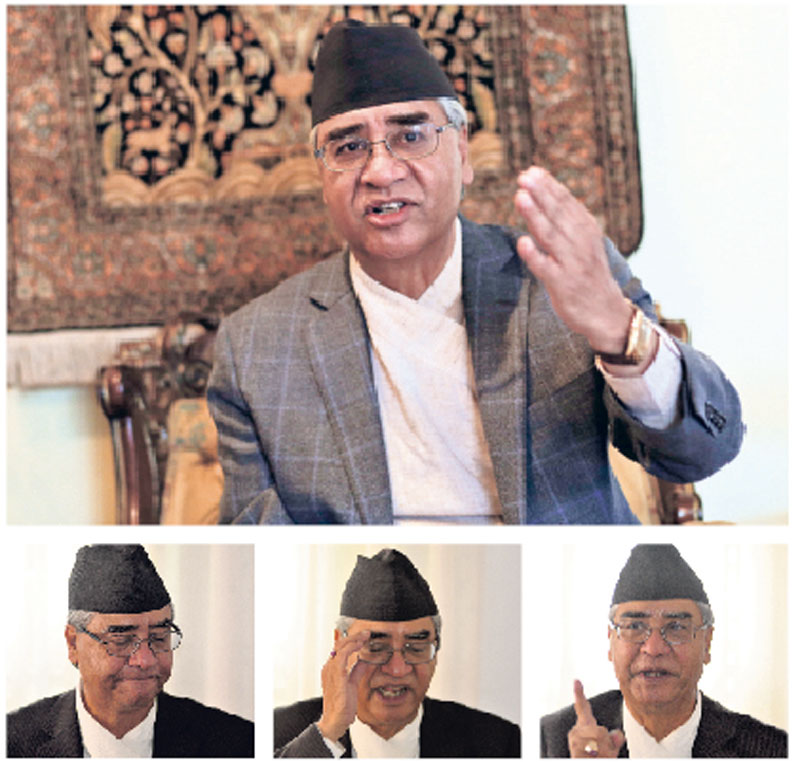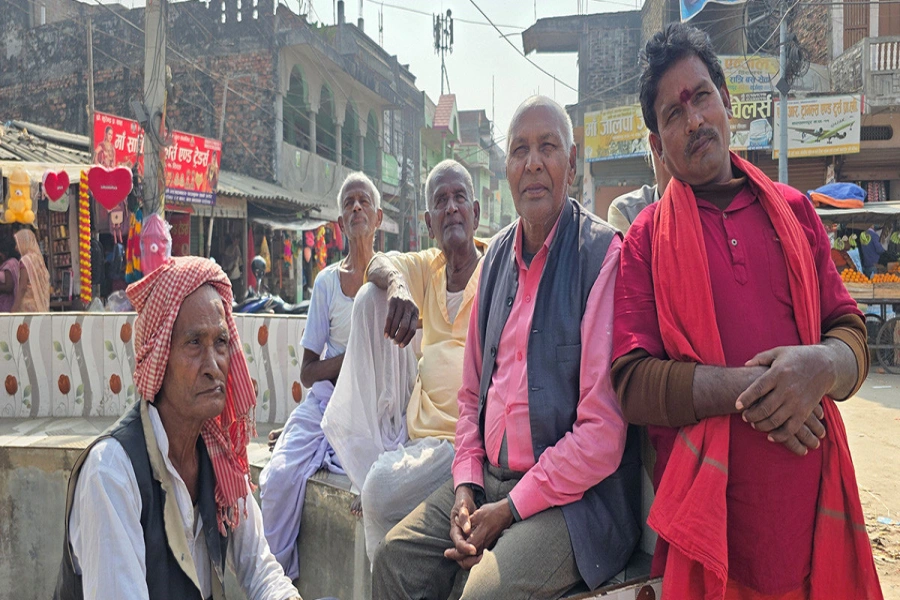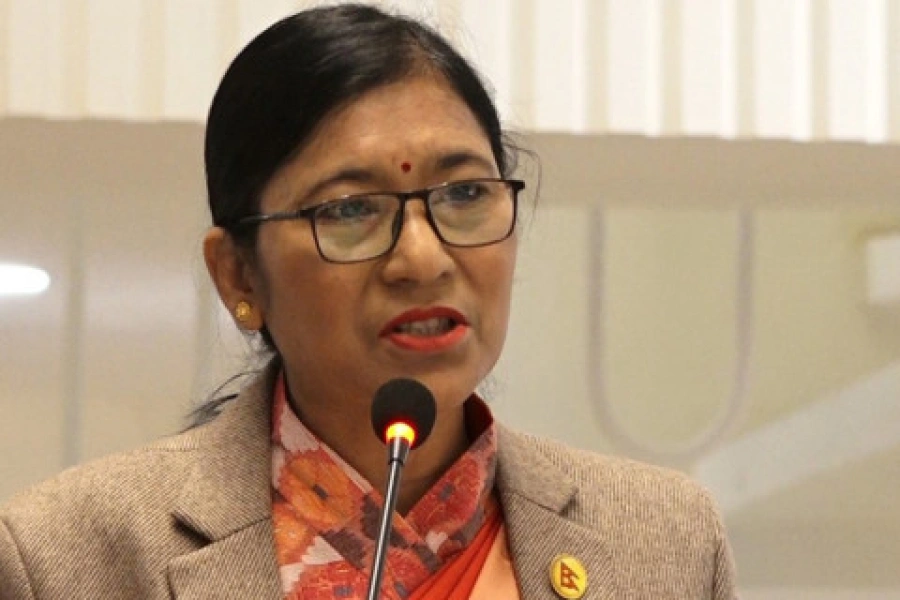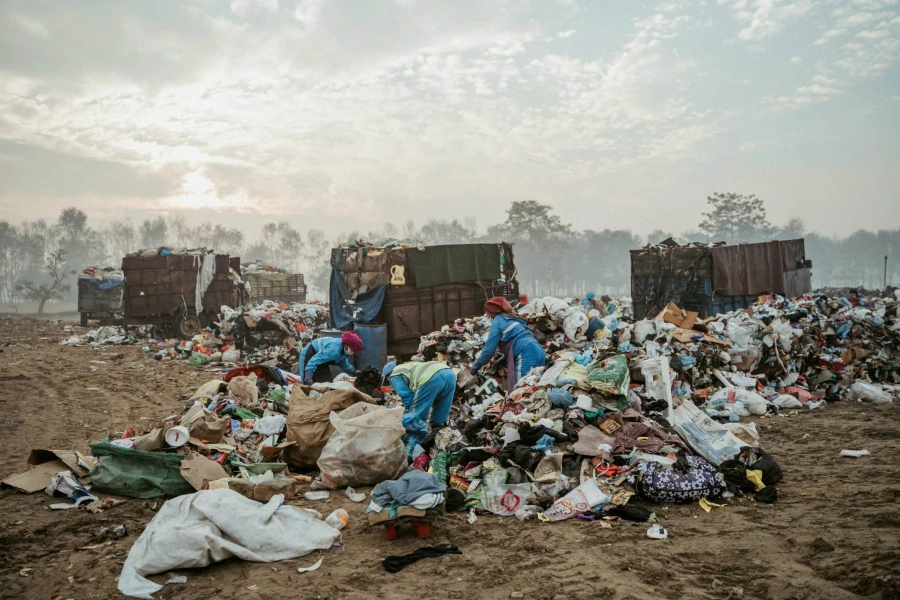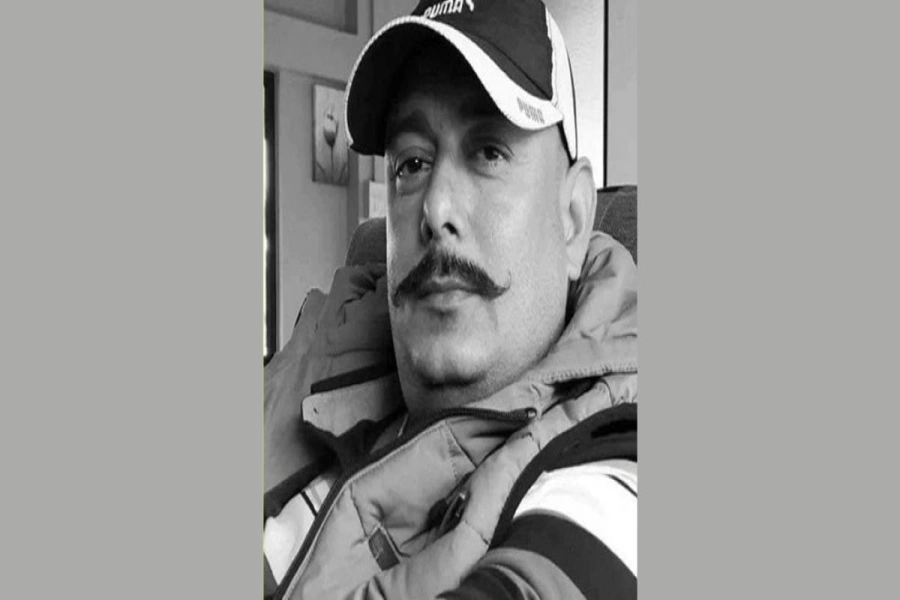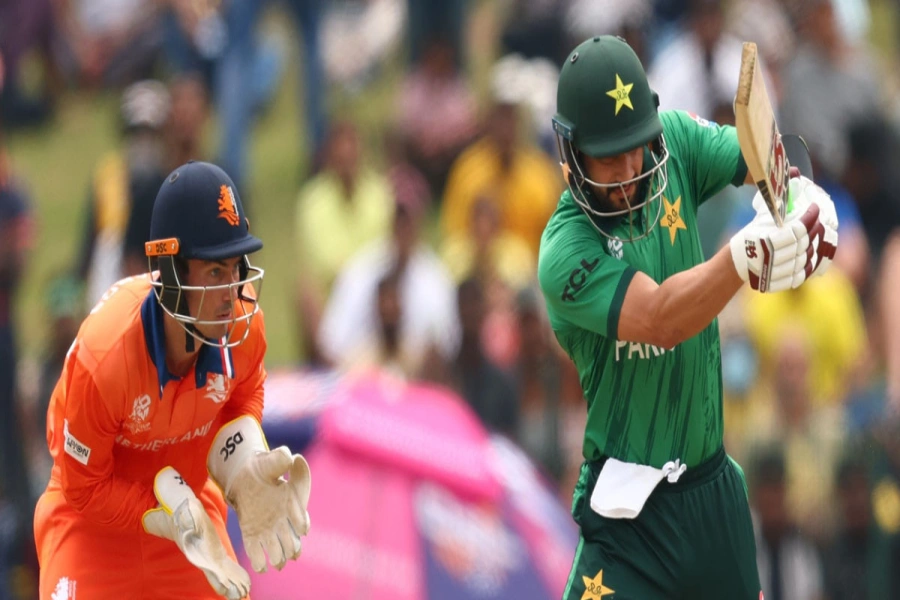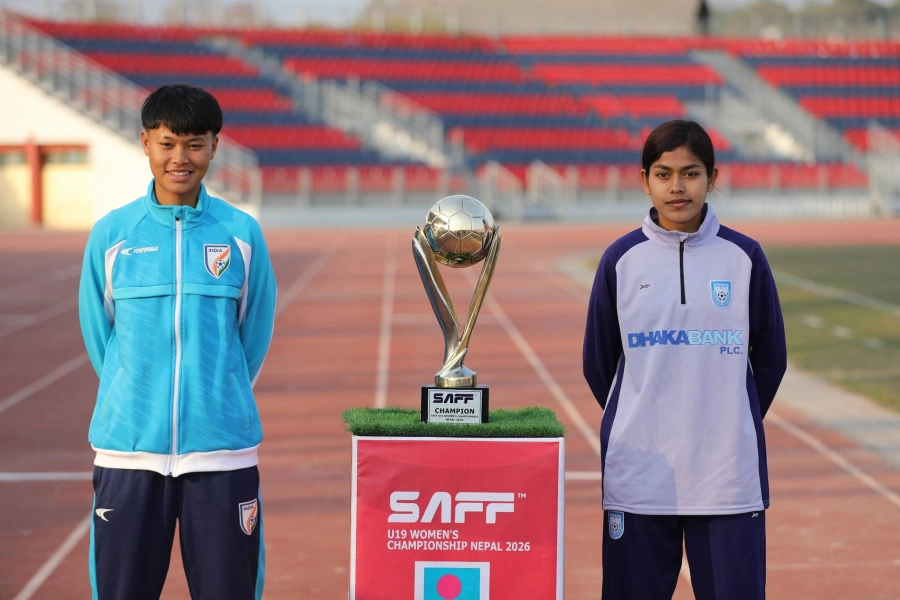“Back then, Radio Nepal was the only source of information for villagers. I knew the schedules of almost all the programs and often copied down the lyrics of the songs as being aired,” recalls the green-eyed presenter about his teen years in his village of Ghyalchowk in Gorkha.[break]
Today, at 30, Narayan’s voice is heard from “Sajha Sawal”, the popular BBC Nepali television and radio debate show that airs from 130 radio stations simultaneously in Nepal and televised via Kantipur Television. The weekly program is a 45-minute debate show on current issues of the country run by the BBC World Service Trust where the public from their grassroots level can question the leaders of the state.
Maybe it was that adolescent affair with the radio that anyone who is at the shooting schedules of the show can vouch that this man is born to do what he is doing. There are no double takes for him, and the flair and fluency with which he shapes his thoughts into words means the person on the hot seat is going for a great ride. The program, which is shot for television and recorded for radio at the same time, feels more like a vibrant live talk show than a pre-recorded one.

The popularity of “Sajha Sawal” and its impact has already started showing, not only in the public but among decision-makers as well.
“For instance, we had a debate about the future of Nepal’s federal structure in one of the shows, which became a reference point for the real debate in the next Constituent Assembly deliberatuions,” informs the journalism graduate of Ratna Rajya Campus in Kathmandu.
About 15 years ago, Narayan, who comes from a modest farming family, moved to Kathmandu with the decision to study science.
“My father still works the fields and I do the same whenever I visit the village,” he says.
After he landed in Kathmandu, the availability and access to different newspapers and books encouraged Narayan to delve into and explore the literary world.
“I was interested in literature from my schooldays. And when I got here, I read for 18 hours a day because here I had access to different resources, unlike in my village,” recalls Narayan. And till this day, radio and newspapers play an important part in this avid reader’s life. “I start my day by monitoring the radio and scanning the morning’s newspapers,” he says.
Besides newspapers, the then political situation also motivated Narayan to get into journalism.
“The Maoist revolution had just started. And maybe that was such a phase in the political and journalism scene of Nepal that it sparked quite a debate amongst the youth,” he says.

He feels it’s necessary for youth to understand politics in order to make the right decisions, but it isn’t necessary for them to get involved in it.
Nevertheless, Narayan switched his education from science to journalism, which garnered negative remarks back in his village.
“Only such professions as doctors or engineers were taken seriously, which in the present context has changed to some extent,” Narayan says.
Narayan’s media career commenced after his Intermediate studies as a radio presenter and journalist for Sagarmatha Radio, where he worked for seven and half years.
During 2005, he worked as a TV presenter for a television program called “Ankhi Jhyal.”
“Apart from hosting, I also prepared a few reports and travelogues for the show,” he says. He credits these previous experiences in radio and television for making his work in Sajha Sawal easier.
“I ran Mirmire Bhaka, a talk program on literature, music and art for a short time. After that, I hosted Ajaka Kura (Today’s Issues), a daily talk program on politics and current affairs of the country,” he informs.
For him, his “Mirmire Bhaka” period provided his golden professional days.
At present, Narayan is a senior producer and presenter for the two year old “Sajha Sawal.”
“The program is a team effort,” he says and adds, “Overall, we’ve designed this program to support the Constitution Drafting and the Peace Process of the country by creating direct dialogues between the grassroots-level people with those in power.
He explains, “Except during a few interviews with journalists, our leaders are never challenged because there are very few interactions between locals and them.”
He informs that the program is based on the successful model of “Bangladesh Sanglap,” a series of televised political discussion and debate programs produced by the Trust in Bangladesh.
So far, for the show, Narayan has traveled to 65 districts of the country.
“Last year, we traveled for 15 days from Mahendranagar in the west to Ilam in the east for the BBC Road Show. We prepared a full program in some places, collected opinions and made reports.”
And one of these days, he plans to take the show to his village as well.
“I’ve been there already to make reports but not to shoot the whole program, “he says.
Let Sajha rise





